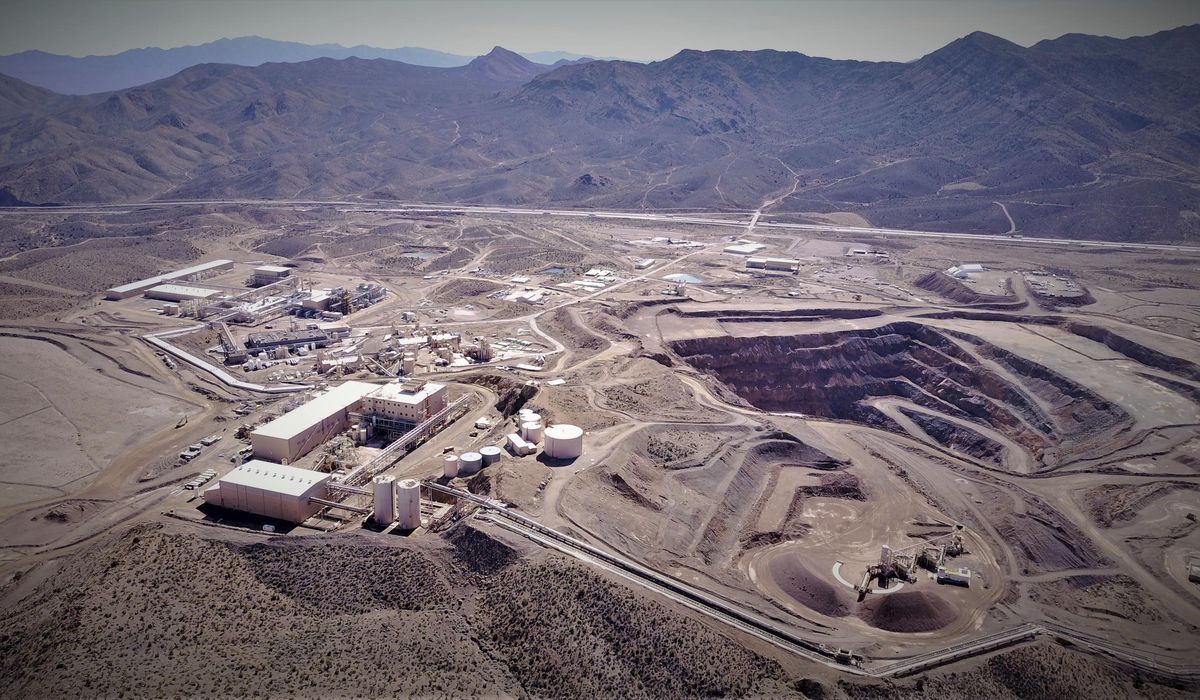


China’s strategic investment in processing instead of mining rare earth metals has led to its nearly total domination of worldwide rare earth metal production, giving the nation leverage over the U.S., an industry expert said in the latest episode of the Threat Status podcast.
“Rare earths are needed for wind turbines, electric vehicles, missile systems, computers, the AirPods that you might be listening to right now,” Nick Myers, who is the CEO and co-founder of rare earth processing company Phoenix Tailings, told Threat Status. “And they’re pretty much needed across every little thing. And China controls 97%.”
Rare earth metals are a collection of 17 chemically similar metallic elements that possess key properties essential for modern goods. Ironically, rare earth metals are not rare, but the process for harvesting them is often expensive and time-consuming.
Unlike most valuable metals, rare earth metals are reactive, meaning they do not sit in the ground in their final form like gold or iron and need chemical processing to extract usable material. Mr. Myers’ company, Phoenix Tailings, collects and processes the nearly 200 billion tons of mining waste, also known as tailings, to harvest rare earth metals.
According to Mr. Myers, China’s extensive rare earth processing infrastructure provides it with significant geopolitical leverage, particularly over the U.S., which relies on rare earth metals for its defense industry. rare earth metals are used in U.S. Navy vessels, radar and sonar systems, F-35 jets, and missile guidance systems.
While Mr. Myers contends that the U.S. still stands far above China in the development of defensive technologies, future economic pressures over rare earth metals threaten to disturb the current order.
SEE ALSO: LISTEN: How China dominates the U.S. in rare earth elements
“There’s really not too much of a debate around the end products that we produce. They’re awesome. What China did strategically at a governmental level is look down the value chain,” Mr. Myers said. “They invested in the metalization. They buy materials, the raw material, from mines at a high price, they process it in China and then sell the metals at a discount. That’s how they’ve ended up being able to control the whole world.”
Mr. Myers adds that China’s dominance in the rare earth processing field could lead to an economic or military disaster for the U.S.
“The tank, the battleship, nuclear energy, wind energy, gas energy, all of it relies on rare earth metals. And without it, our society is crippled not from a military standpoint, only from an actual everyday operation standpoint,” Mr. Myers said. “They are playing on a different level right now. China is engaging in economic warfare. They understand that warfare is not all kinetic, and they’re leveraging their economic power.”
The world’s attention turned to rare earth elements earlier this year after the U.S. and Ukraine signed the Mineral Resources Agreement, which gives the U.S. preferential access to the metals in exchange for continued military support. The deal, which came at the end of a lengthy and contentious debate between Kyiv and Washington, could be the first step in reducing U.S. reliance on Chinese rare earth processing.
“I couldn’t tell you that a specific deal with Ukraine is good or bad. I do not know. But what I will say is it’s a new resource for the extraction of rare earths. There are a good amount of rare earths,” Mr. Myers said. “The U.S. is currently looking for more sources. They recognize that it’s very tough to build up in the United States. And Ukraine may be a better area to build this up at a faster rate within reason.”
The development of a U.S. domestic rare earth processing infrastructure capable of competing with China is hindered by challenges common to other industrial sectors, including high labor and maintenance expenses, as well as a comprehensive regulatory framework.
However, the Trump administration’s recent move to acquire a financial stake in Intel has suggested more government cooperation with private companies. Mr. Myers said he is unsure how much government cooperation is acceptable, but noted President Trump’s action shows awareness of competing with state-supported Chinese firms.
“What President Trump and the current administration have acknowledged is that there is a foreign governmental agency that is saying we do not want U.S. manufacturers to produce rare earths,” Mr. Myers said. “We fight every single day to sell our product to customers when the Chinese are subsidizing theirs at a steeper discount. And I go to buy raw material and they’re willing to pay a higher price. So it’s very tough. And we are excited to see that there’s some steps from the administration to counteract that.”
• Vaughn Cockayne can be reached at vcockayne@washingtontimes.com.
